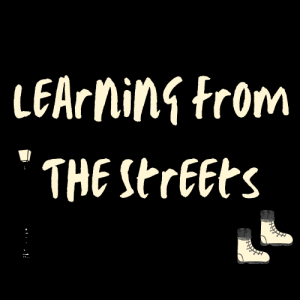Back in the Mid Nineties, and it might even still be kicking around somewhere in the annals of basic youth ministry training mythology, there was a phrase that went like this:
Q:How do you spell Love?
A: T-I-M-E
The thought being at the time that ‘giving young people’ – giving anyone time was a way to ‘love’ them. What this seemed to say was that ‘by putting on’ a youth group, an activity for young people, and giving them time in your day, making time for them in the church schedules, creating time for them to be part of Sunday services – was a way to indicate that the young person, and as a group were loved.
In those, and every day, Young people have a high value on authenticity. Giving them ‘Time’ was a way to do this – or so it was meant to indicate.
Problem is that time was often about getting young people to be part of ‘doing what we (adults/the church) want them to do for us. It was a transactional relationship – we’ll give you time, if you do what we want – this is us showing that we love you. It was a transactional relationship in which young people in their masses have checked out the store and aren’t bothering to go back to, not even to claim a refund.
Maybe because Time wasn’t love after all.
Not in that way.

What if Listening is loving?
In Hector and the Search for Happiness, Hector recognises that Listening is Loving. Its key for happiness. Being listened to.
Listening is one of the core features of developing detached youthwortk on the streets and I public spaces. I would normally advocate for a good few weeks and months of sending out into the area teams of people to listen to the real sense of what is going on. Because listening occurs in a number of ways – before even conversations with young pope require listening to.
Listen to the Context – the sounds, the patterns, the behaviours, the interactions, the languages, the modes of speaking
Listen to the Context – what are its key messages to you – what’s the fight all about, whats getting people angry, upset, – whats the theme of the graffiti – who is writing it, whats noise is there at different times of the day, whats the chat about at bus stops, metro stops, buses or in the queues at the shops.
Listen to Ourselves – how are we making observations, can we accept and not make judgements? – what feelings to I have, do I acknowledge – what prejudices might I have, what favouritism might I have – what voices do I hear loudest – which are lessened?
It’s as if the precursor to community based work is listening…
But what kind of listening? It seems like listening has become the reaction to getting things wrong. Boris promises to ‘listen’ more after making a mistake – but how and how would have this been measured? Promising to listen, seems a political thing.
Of course tokenistic listening isn’t loving at all is it? Listening to only hear what we want for our means, seems like opportunist and strategic, and when I am only listening like this I miss the spaces in between..what isn’t being said
What if I’m listening to my children when they returned home from school a few years ago, and all I actually heard from them were the words ‘headmaster’ ‘trouble’ and ‘£10’, I was listening, but was also preparing food..what might I infer from the key words I heard? How might I react? Would I think they got into trouble stealing £10 and were sent to the headteacher? What if they were telling me their friend got into trouble? Or what if the headteacher said ‘if it’s no trouble can everyone pay £10 for the school trip?
Was I listening? Or was I listening and not being fully present? Was I listening and taking just the words I wanted to hear and trying to make conclusions from limited information? What ,maybe who, was more important, the task I was doing for them, or listening to them in the space?
Can listening in community work feel like the same? Listening for the important words so that we, organisations and charities and churches can fly into appropriate action? Is that love? Was it even listening?
If we’re interested in listening as loving, what kind of listening might that require? On a personal level, I didn’t know how to speak about difficulties in life…
Until I felt safe. A safe person, a safe relationship, safe. But even then it took time, alot of time. Listening so that I could act and change my reality. Not to have it done for me. But safety was what I needed.
Listening involves time. Listening involves patience
Listening involves listening to the gaps
Listening involves an open space for someone to talk, not a space to mine the information.
Listening involves ourselves…being willing and attentive
Listening involves noticing the emotions behind the words
Listening involves not interrupting
Listening
Is anyone listening?
Are we as good at listening as we might say we are?
Am I?
What does it take to be present to the person who is speaking to me?
What listening might be required?
What does it feel like to be listened to yourself?
Have you felt this? Have you?
What might it take to pass this on?
When I am anxious, I’m not listening, when Im afraid of silence, Im not listening, when Im trying to make something happen, and fear having too open a space in a one to one session with a young person – or in a supervisory context- am I listening? When the system, or the church, or the organisation is crumbling… is listening possible? What might the effects of not listening be? Usually assumptions, judgements, projections and quick fixes.

Listening is loving.
Non listening is something different.
I think the process of healing begins when we open our hearts and listen empathetically.
We can help people not because we know the solutions to their problems
but because we care enough to stay and lend our ears.
knowing that others have gone through similar difficulties
they become better equipped to cope with theirs
Haemin Sunim (Love for Imperfect things)












